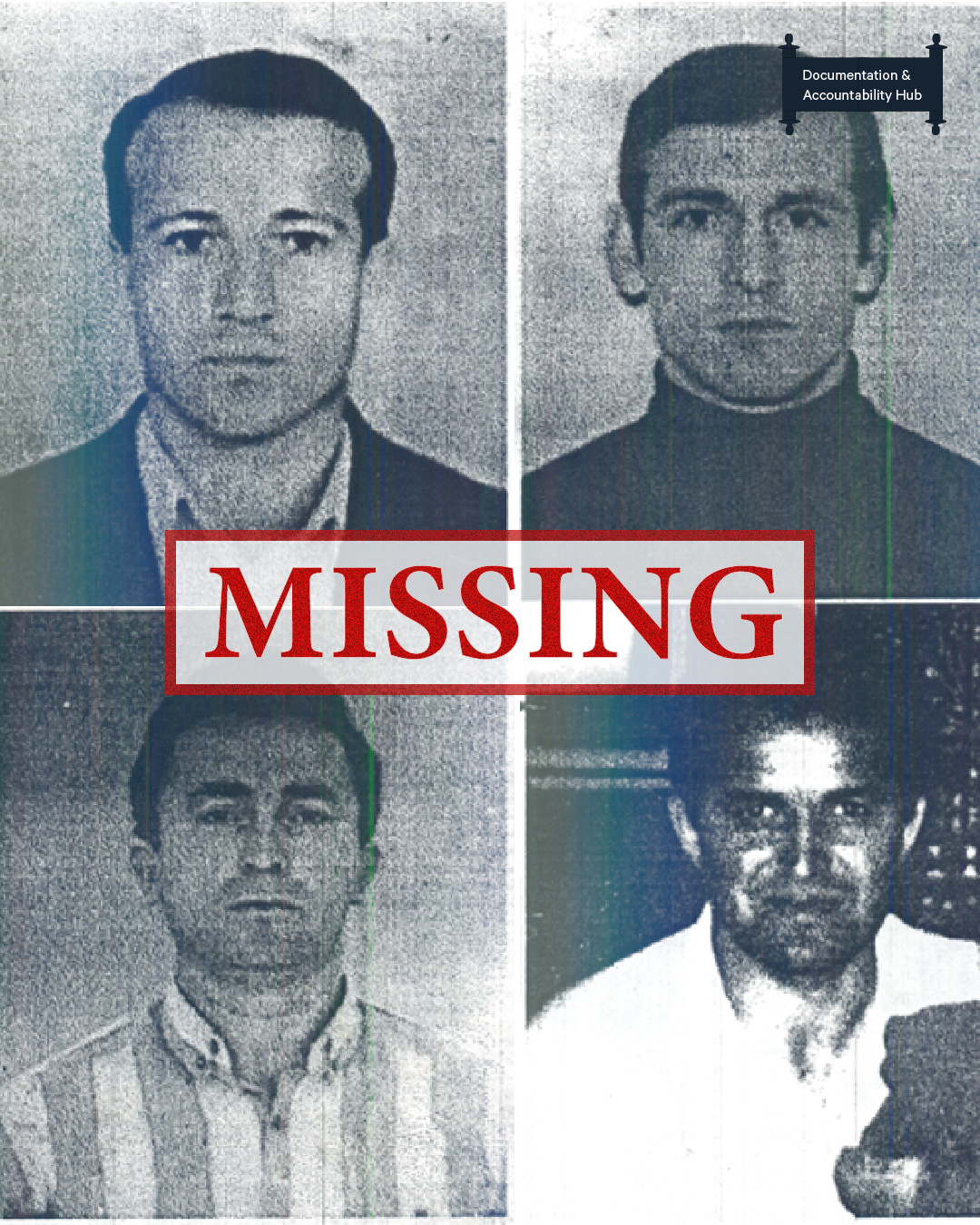While the relatives of some victims had guesses and suspicions about why they had been taken away, even on made-up and unlawful grounds, the reasons for why the others were kidnapped, remains a mystery to this day. Death squads are behind many of these crimes. But, it is not entirely clear which department they belonged to and whom specifically they were subordinate to.
However, according to the “code-word” that they would shout out at their own Russian posts and after which they were immediately let through at any time of the day and in any part of Chechnya, human rights activists would call them “Putin’s people”.
In the evening of 17 February 2002 Russian military men in masks blocked the road between the regional center of Shaly and the village of Avtury. Arriving there in two armored personnel carriers, they checked the documents of people that were rushing home before the curfew. The car of the Gazalapov brothers was also stopped. Abubakar, 37, and Idris, who was his ten-year-old junior, worked as watchmakers in Shali. Three other people were traveling with them as passengers: two fellow villagers Ramzan Gandaev and Nurid Dzhabrailov, and a resident of Grozny living in Avtury as a refugee.
Acquaintances and passers-by of the same road tried to find out the reason for the detention, but the Russian military, threatening them with weapons, rudely and authoritatively ordered them to move on. Abubakar and Idris Gazalapov and their fellow travelers also said that everything would be fine with them, that a formal check of documents was underway, after which, they said, they would probably be released. The people, calmed down by them, left.
However, the further events clearly went beyond the scope of both normality and routine even for Chechnya at that time. About half an hour later, the villagers heard a blast. The relatives of the Gazalapov brothers also heard it. The 71-year-old father of Abubakar and Idris, who had already been informed of the detention of his sons at the check point, immediately went there. The military met him with hostility. They stated that no one had been detained and that they had not seen the people he described at all.
The old man did not believe them. Together with fellow villagers, he went to the alleged site of the explosion. There, a few kilometers from the military standing on the road, among the bushes and trees, he saw the car of his sons. It was destroyed by the explosion, but inside and around it there was nothing that would indicate the murder of the people sitting in it.
Hoping that they were alive, the father and the relatives of Abubakar and Idris Gazalapov turned to the bodies of the occupational Russian authorities and met with officials of the military administration. More specifically, with the commandant of the Shali district, and with the heads of the Russian and local police departments consisting of pro-Russian Chechens. The fellow villagers of the disappeared did not sit idle either. In protest, they even gathered at the gates of the nearest military unit and held a picket there for many hours. But it was all in vain – the brothers and their passengers disappeared. As of February 2023, their further fate is not known for certain.
It is also unclear what caused their detention. Why, out of the huge number of people passing that evening along the Shali-Avtury road, did Abubakar and Idris Gazalapov and their passengers attract the attention of the military in masks, why would they blow up the car and where, since they were not killed on the spot, would they be taken? These questions can be repeated infinitely. For example, why would the authorities not even pretend to investigate the crime? Indeed, in many cases of abductions, the Russian prosecutor’s office initiated criminal cases, but would suspend them later, citing the alleged impossibility of identifying the persons to be held accountable. Smooth, as they would say. They would claim that they tried but it did not work unfortunately. And here they didn’t even try to pretend to investigate, immediately and decisively shrugging off all the statements of relatives and the indignant actions of fellow villagers.
Residents of the village of Avtury believe that the possible reason for the disappearance of these people is simple to the point of banality. Money! The Gazalapov brothers were driving home from work that evening and had cash on them. The military took away the money, and at the same time decided to get rid of the witnesses of the robbery. The task set before the members of Putin’s death squads is to strike terror through unmotivated murders and kidnappings, to inspire fear so that the inhabitants of Chechnya would not even think about resistance. If at the same time you can also make a little money, then why not? One should not leave money on the road.
We don’t have much information about the victims of this crime. The number of the criminal case that was initiated but not properly investigated. A summary of what happened and the external data of the disappeared with their addresses of residence. Height, weight, hair and eye color, scars and moles on the body, and so on. But the most important question we should have an answer to is missing: who abducted the five residents of Avtury and what happened to them after that? “Putin’s people” left no traces. And it is useless to look for them. So far it has been useless…
Information about many such crimes committed during the second Russian-Chechen armed conflict is stored in the electronic database of the Natalia Estemirova Documentation Center at the Norwegian Helsinki Committee.
Contact us
Employee
